Marine Life & Conservation
The World has lost half its marine life in the last 50 years, says report

The number of marine creatures living on earth has halved in under 50 years, according to a new international report
A recent study for the conservation charities WWF and the Zoological Society of London (ZSL) shows populations of mammals, birds, reptiles and fish in global oceans declined by 49 per cent between 1970 and 2012, with some near extinction.
The new “Living Blue Planet” report blames over-fishing as the main driver of the loss of ocean life, but says climate change is accelerating the decline.
Environmentalists are warning the large-scale disappearance of sea life is disastrous both for the health of the planet and for people across the world who depend on the ocean’s resources.
They say the latest findings highlight the devastating impact of human activities and are calling for urgent action to safeguard the planet for the future.
The report states: “For centuries people have regarded the ocean as an inexhaustible source of food and a convenient dumping ground, too vast to be affected by anything we do. But in the space of just a few decades it has become increasingly clear that the ocean has limits and that in many important parts of our seas the sustainability thresholds have been well and truly breached.”
It concludes that global warming is causing oceans to change more rapidly now than ever before, with rising temperatures and acidification further weakening a system already damaged by over-fishing, habitat degradation and pollution. It continues: “Driving all these trends are human actions: from over-fishing and extractive industries, to coastal development and pollution, to the greenhouse-gas emissions causing ocean acidification and sea temperature rise.”
The authors warn that all coral reefs could vanish by 2050 if oceans continue to warm at the current rate. With more than a quarter of all marine species living in coral reefs, the loss of these habitats would be catastrophic. The study shows the family of fish that includes tuna and mackerel has shrunk by 74 per cent, with bluefin and yellowfin of particular concern. There have been dramatic declines in species found in UK waters, including the vulnerable porbeagle shark and critically endangered leatherback turtle.
Steep drops in the cover of mangroves and seagrasses have also occurred.
But experts believe action can be taken to reverse the trend.
WWF Scotland director Lang Banks said: “Our oceans and seas are some the most amazing parts of our planet, and this report is a stark reminder as to what would be at risk if we do not begin to turn things around.”
He said the creation of marine protected areas, where some damaging activities such as types of fishing are banned or limited, could play a key part in improving the health of the ocean.
Consumers can also ensure all seafood they eat is certified as sustainable, as well as reducing waste and litter that can end up in the seas.
“This is a wake-up call, but it is also an opportunity,” said Robin Freeman, head of indicators and assessments at ZSL.
Source: www.scotsman.com
Marine Life & Conservation
Experience the Greatest Shoal on Earth followed by few nights with Sharks next month at some really great rates with Seas4Life (Watch Video)
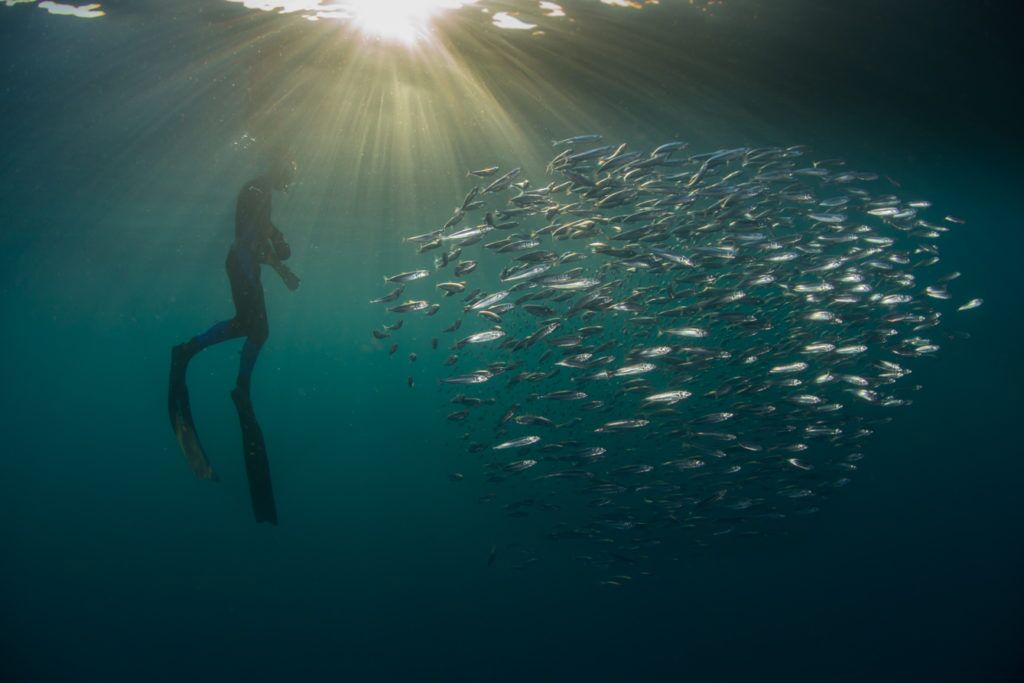
An Exclusive, Expert Led, One-Off experience…
For just a few short weeks each year – end of May through to end of June – the mighty Sardine Run showcases the epic efforts of supreme marine predators working in unison to feed off the migrating sardines in a most dynamic flurry of action. End of June early July is also when the shark season begins – just imagine it is a David Attenbourgh Blue Planet experience.
In case this natural wonder wasn’t exciting enough – majestic humpback whales just happen to start their annual migration back up north adding to this phenomenal experience.
Its a must for the adventurous soul.. Lots of love, laughter, and smiles.
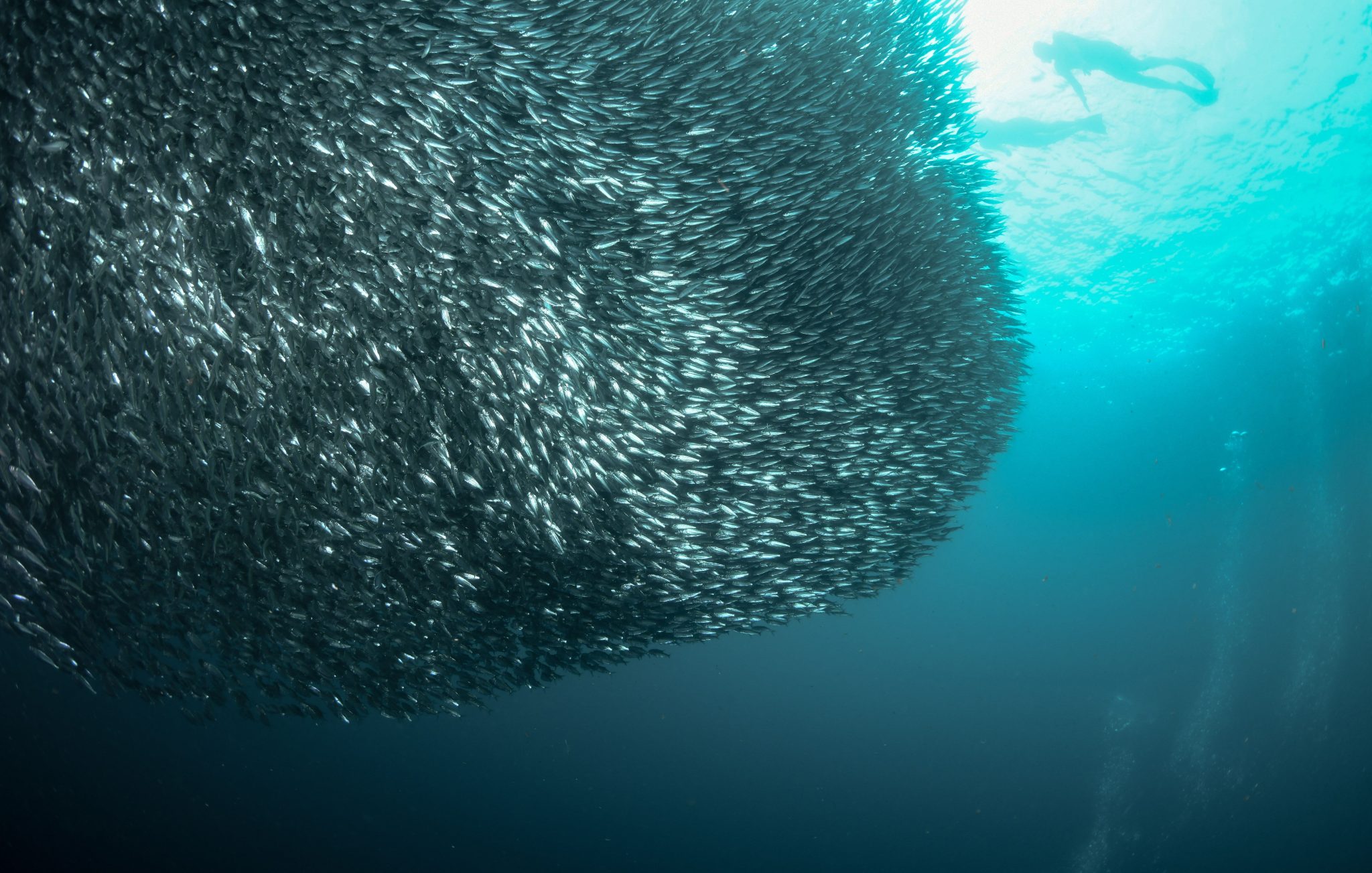
This is a feeding event of unmatched proportions. Thousands of common dolphin charge after the shoals, separating them into bait balls, with their ‘dolphin bubble technique’, bring them to the surface. Watched from the air by the cape gannets, who then launch a massive aerial assault on the sardines. They are also easy pickings for shivers of bronze whaler, dusky and black tip sharks, seals and lastly the huge mouths of Brydes (Brooders) whale that can consume an entire bait ball in one single lunge!
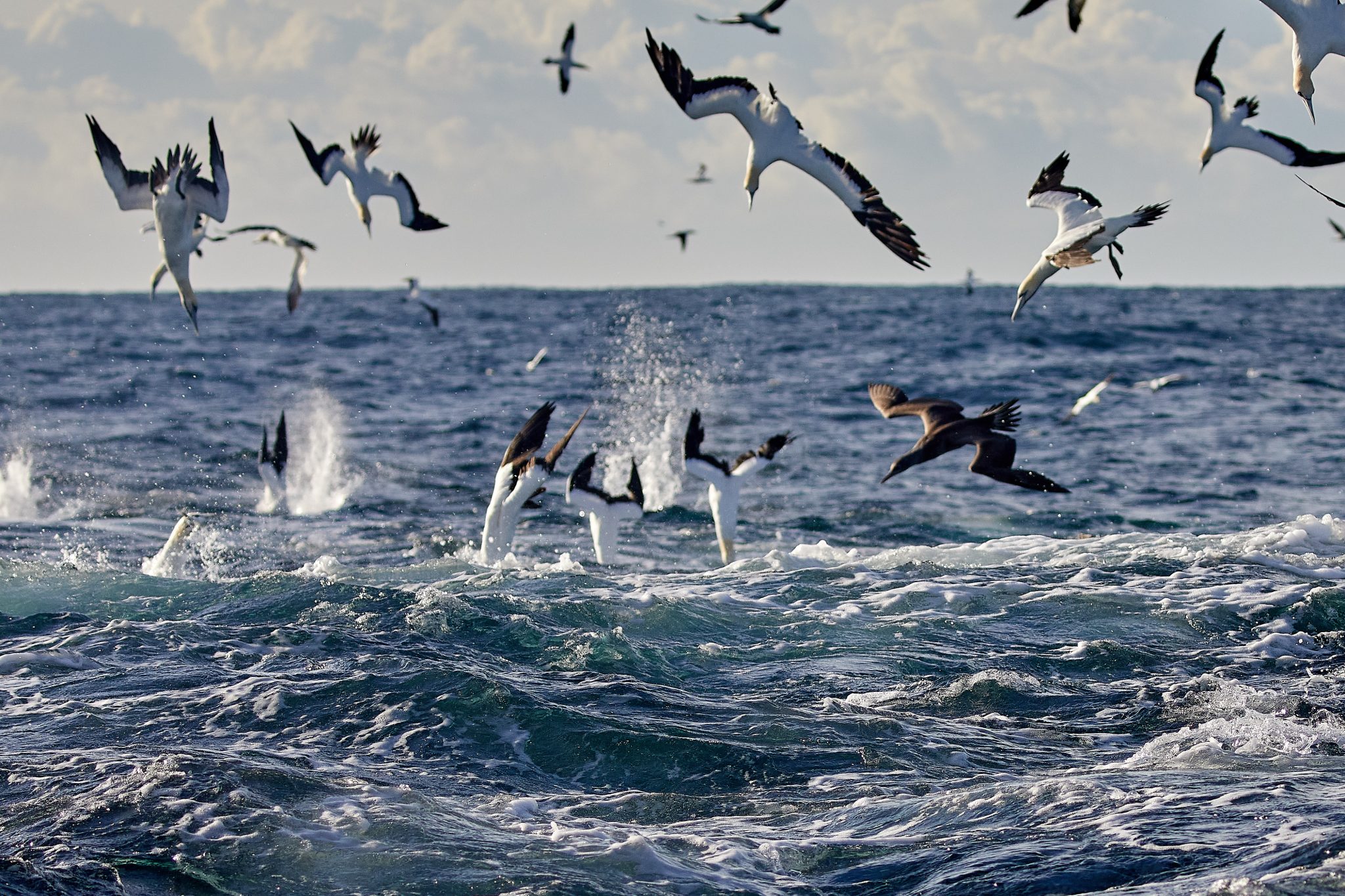
Seas4Life is offering an incredible deal for this year’s Sardine Run. Here are the details:
Date: June 23rd – July 2nd 2024
Type: Family, group, couples, solo travellers. Min of 4 pax – max 8 pax
Location: South Africa
Nights: 9 nights/10 days
Rates originally started at USD$9,705 per person 9 Nights PP, based on 5 pax on the trip. However, you can now experience the Greatest Shoal on Earth followed by some seriously unforgettable shark action for just USD$7,100 per person.
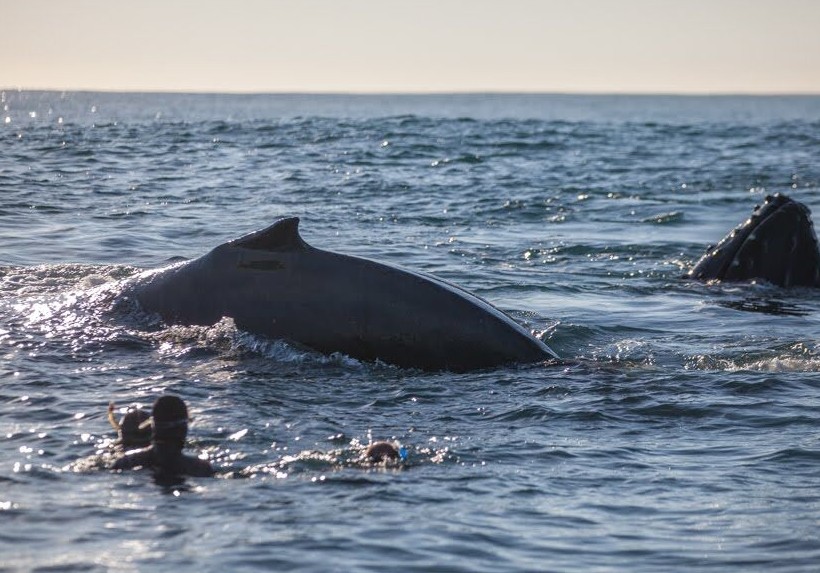
Includes:
- 5 night stay at Gulu Game Reserve (23rd – 28th June)
- 4 night stay at Africa Oceans Manor (28th June– 2nd July)
- 9 nights fully catered stay with breakfast, packed lunch and dinner
- Welcome drinks and selected alcohol (local beers, wines and spirits)
- 4 Sardine Run Days and 3 full Shark Research Days – 1 morning being with Great White
sharks - Guiding by expert marine conservationists, shark specialists and ocean enthusiasts
- Transfers to and from the airports and to and from the launch base and hotels; and on 28th June from Gulu Game Reserve to African Oceans Manor along the Southern African Coastline and parts of the Garden Route
- Privately chartered 26 foot (8m) semi-rigid dive boat (South African Maritime Safety Authority, licensed to travel up to 40 Nautical miles offshore) with two 140hp motors
- Snorkelling and scuba diving gear
- All activities as outlined in the itinerary
- Use of Gulu Private Resort and African Oceans Manor facilities including rejuvenating in their spa, use of the pool, playing tennis, hiking or fishing… (these will be charged separately if used)
- Marine conservation contribution to the shark research unit
- Offsetting your carbon through Planet Moja
- AMREF
- Lead shark scientist Nico, sardine run expertise of ScubaXursions
- Julie as lead guide
- Lots of smiles, laughter and many memories made
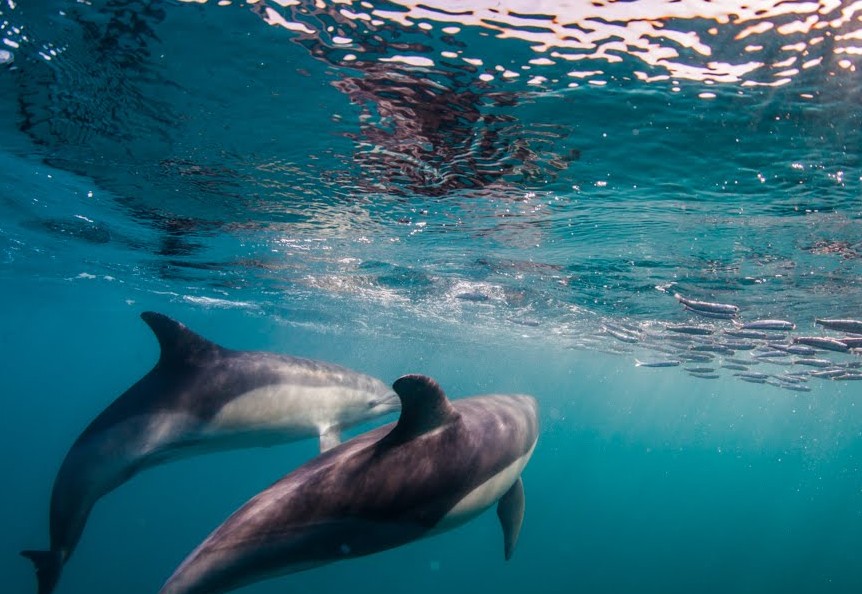
Excludes:
- International flights
- Visas and taxes (airport, government and tourist)
- Scuba diving, free diving and underwater photography courses
- Alcoholic drinks (unless stated) champagne, luxury spirits and selected wines
- Activities not outlined above
- All photographic gear
- DAN Insurance, Scuba and/or photographic gear insurance
- All additional park and/or conservancy fees if applicable
- Travel and health insurance
- Items of a personal nature
- Gratuities
For more information or to book, contact Seas4Life now:
info@seas4life.com / +254 723 639 640 / seas4life.com
Blogs
Heading out on the water this Summer? Watch for manatees
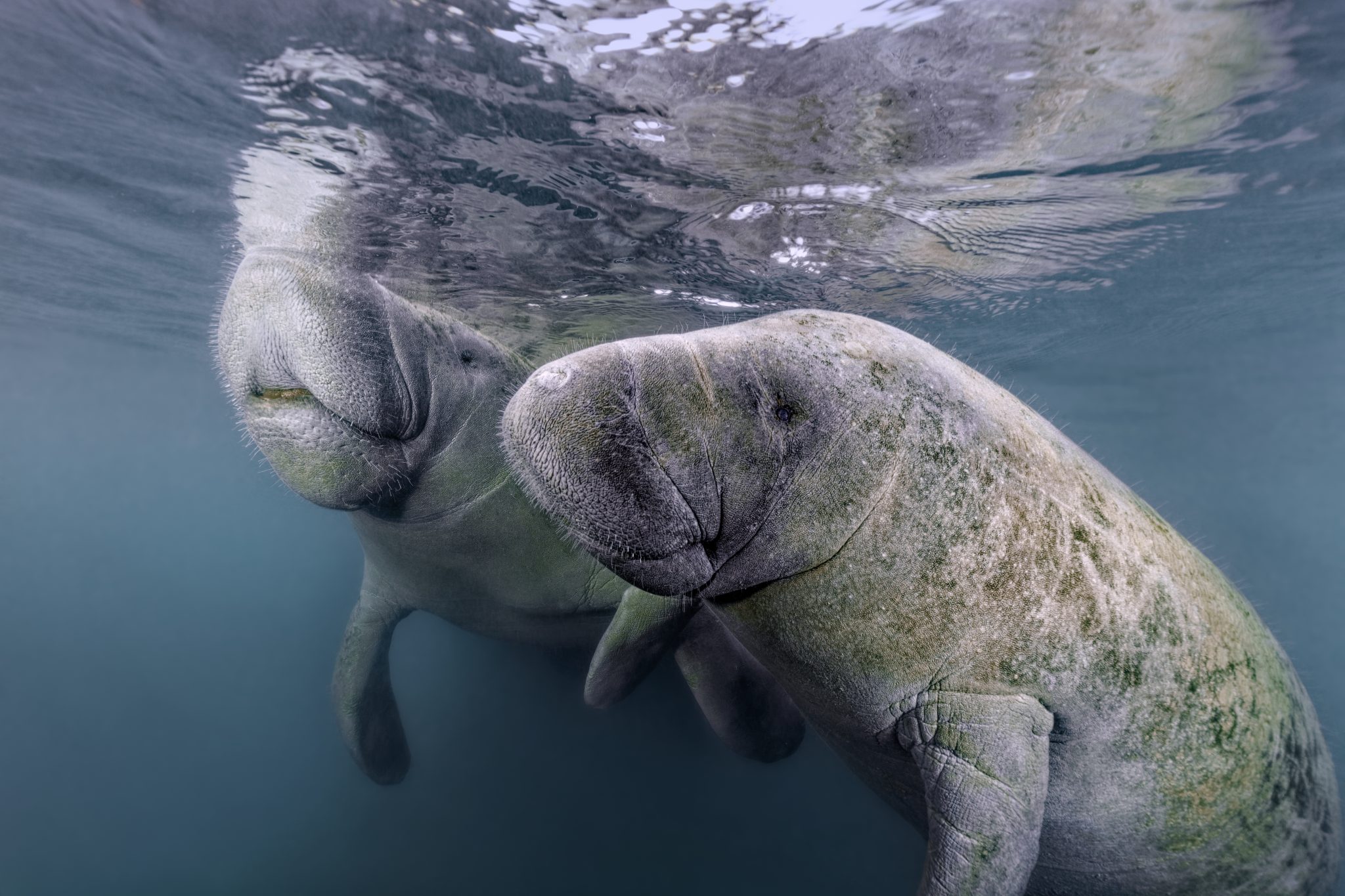
As National Safe Boating Week approaches, Save the Manatee® Club is urging boaters, and anyone that enjoys Florida’s waterways, to respect and protect the defenseless manatees that inhabit our shared waterways. From May 18 to 24, leading up to Memorial Day Weekend, the campaign aims to raise awareness about recreational boating safety and the importance of safeguarding imperiled manatees during the summer boating season. This week also emphasizes the importance of encouraging boaters to enroll in a boating safety course.
Manatees are semi-migratory marine mammals that are commonly found in shallow estuaries, bays, rivers, canals, and coastal areas throughout Florida and neighboring states. With some manatees venturing as far west as Texas and as far north as Massachusetts, collisions between these gentle giants and watercraft have become distressingly frequent. Boat propellers and high-speed collisions pose significant threats to manatees, often resulting in severe injuries or even death.
Save the Manatee Club is calling on all water enthusiasts to follow essential manatee safety tips to ensure the well-being of the imperiled manatee:
- Obey Speed Zone Signs: Familiarize yourself with and adhere to posted speed limits to prevent collisions with manatees.
- Reduce Glare with Polarized Sunglasses: Wear polarized sunglasses to enhance visibility and spot manatees below the water’s surface.
- Recognize Manatee Signs: Learn to identify signs of manatees in the area, such as swirls or flat spots on the water caused by their movements.
- Respect Manatee Sanctuaries: Keep a safe distance from posted manatee sanctuaries and avoid pursuing or harassing these marine mammals, as it is illegal and can disrupt their natural behaviors.
- Report Distressed Manatees: In Florida, promptly report distressed, injured, tagged, or orphaned manatees to the Florida Fish and Wildlife Conservation Commission (FWC) at 1-888-404-FWCC (3922). Outside of Florida, report sightings to the appropriate state agency or rescue organization. A list of agencies to contact is available at savethemanatee.org/report.
- Protect Seagrass Beds: Avoid boating over seagrass beds and shallow areas where manatees may be feeding. Stick to deep water channels while remaining vigilant, as manatees also utilize these channels during their travels.
- Dispose of Fishing Line Responsibly: Anglers should properly dispose of or recycle used fishing line to prevent entanglement hazards for manatees.
“Each year, National Safe Boating Week provides an excellent reminder for all of us to be aware that we share our waterways with vulnerable manatees,” emphasized Patrick Rose, Aquatic Biologist and Executive Director of Save the Manatee Club. “With the recent Unusual Mortality Event on Florida’s East Coast claiming an alarming number of manatees’ lives, it is more crucial than ever to prevent preventable deaths caused by watercraft collisions. By following manatee-safe boating guidelines, such as obeying speed zones and remaining vigilant for manatees, everyone on the water can contribute to the protection of these gentle giants.”
Save the Manatee Club offers a range of free materials to help safeguard manatees and raise awareness about manatee-safe boating practices. Shoreline property owners and park or marina managers can order aluminum dock signs to alert others about the presence of manatees in their areas. Boaters and paddlers can request packets containing a safety tips card, a waterproof boat banner, and a decal to display on their vessels, providing the number to report manatees in distress. To view and request these materials, visit savethemanatee.org/resources. Save the Manatee Club will also be hosting a live webinar for National Safe Boating Week on Tuesday, May 21st at 6pm EST. To register, visit savethemanatee.org/register.
-

 Blogs4 weeks ago
Blogs4 weeks agoDive Indonesia Part 3: Dive into Lembeh Trip Report
-

 News3 months ago
News3 months agoPADI Teams Up with Wellness Brand Neuro to Drive Ocean Change and Create a Blue State of Mind
-

 Gear Reviews1 month ago
Gear Reviews1 month agoGEAR REVIEW – Revolutionising Diving Comfort: The Sharkskin T2 Chillproof Suit
-

 Blogs2 months ago
Blogs2 months agoMurex Resorts: Passport to Paradise!
-

 Blogs3 months ago
Blogs3 months agoDiver Discovering Whale Skeletons Beneath Ice Judged World’s Best Underwater Photograph
-
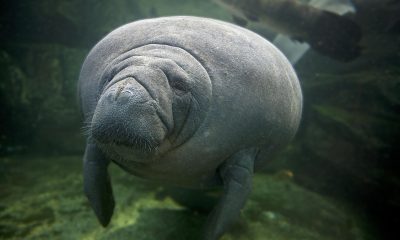
 Blogs2 months ago
Blogs2 months agoSeagrass Awareness Month brings critical food source for Manatees to centre stage
-

 Marine Life & Conservation3 months ago
Marine Life & Conservation3 months agoSave the Manatee Club launches brand new webcams at Silver Springs State Park, Florida
-

 Blogs2 months ago
Blogs2 months agoSOMABAY: Scubaverse interviews Wolfgang Clausen, General Manager, ORCA Dive Clubs




